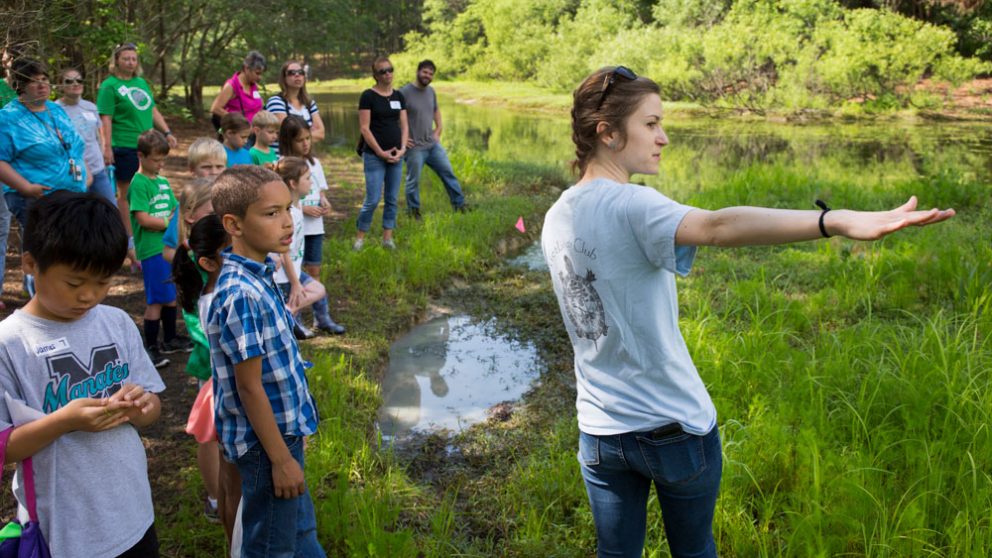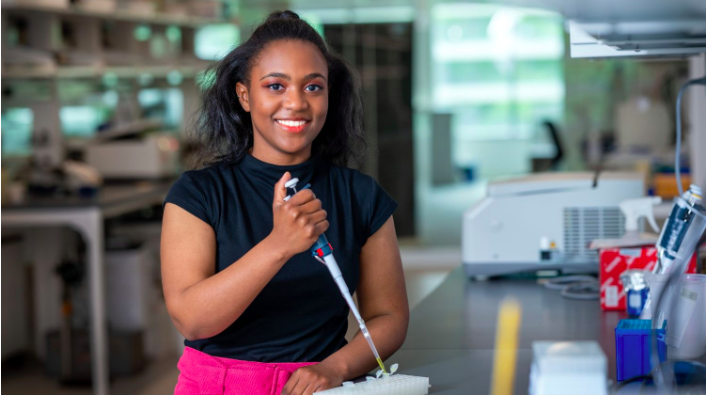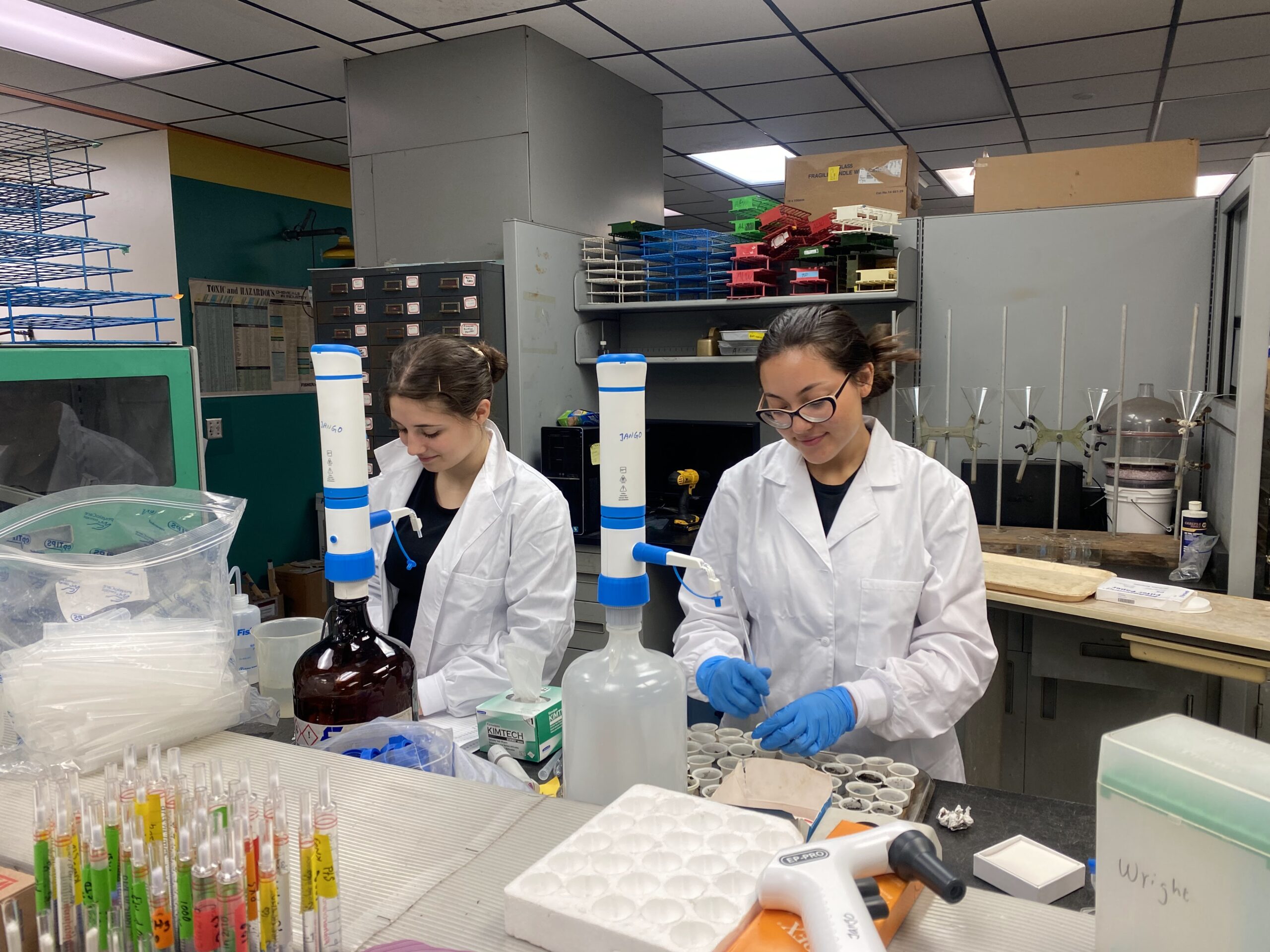Essential Element
Phosphorus is an essential element to life, underpinning many critical biological processes and driving the productivity and sustainability of global food systems.
The Science and Technologies for Phosphorus Sustainability (STEPS) Center is a convergence research community of diverse and leading scientists that addresses the complex challenges in phosphorus sustainability by integrating disciplinary contributions across the physical, life, social, and economic sciences. The STEPS vision is to facilitate a 25% reduction in human dependence on mined phosphates and a 25% reduction in losses of point and non-point sources of phosphorus to soils and water resources within 25 years, leading to enhanced resilience of food systems and reduced environmental damage.
A Roadmap to Phosphorus Sustainability
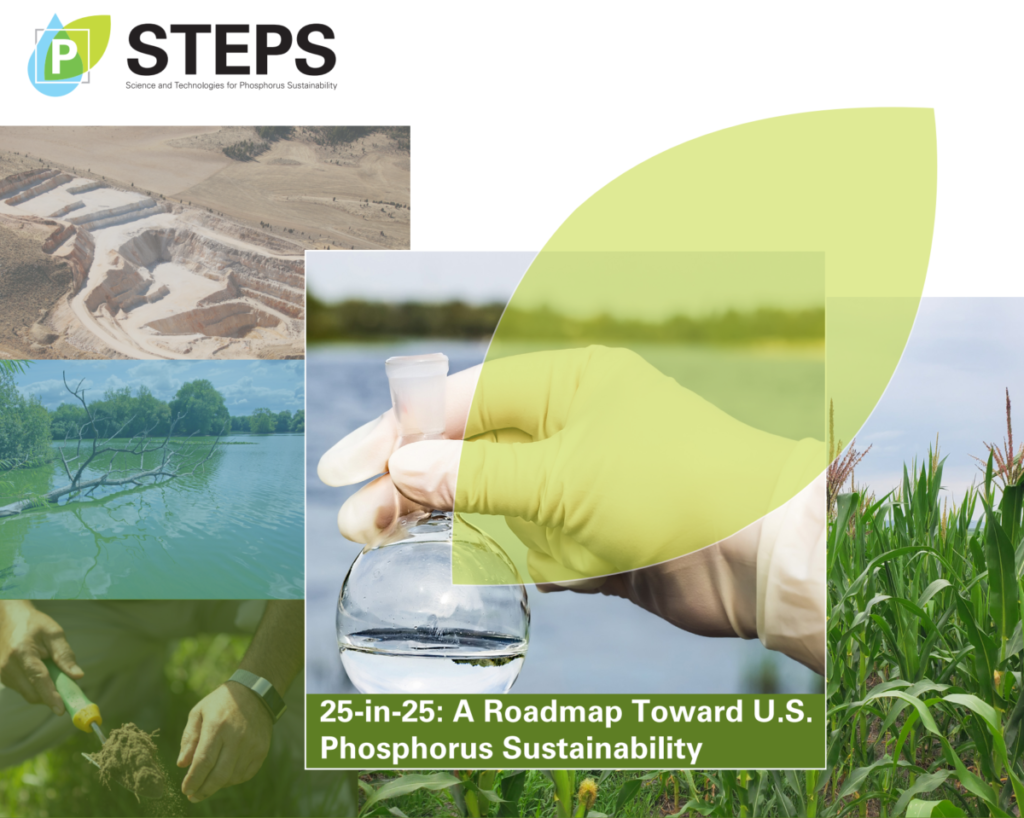
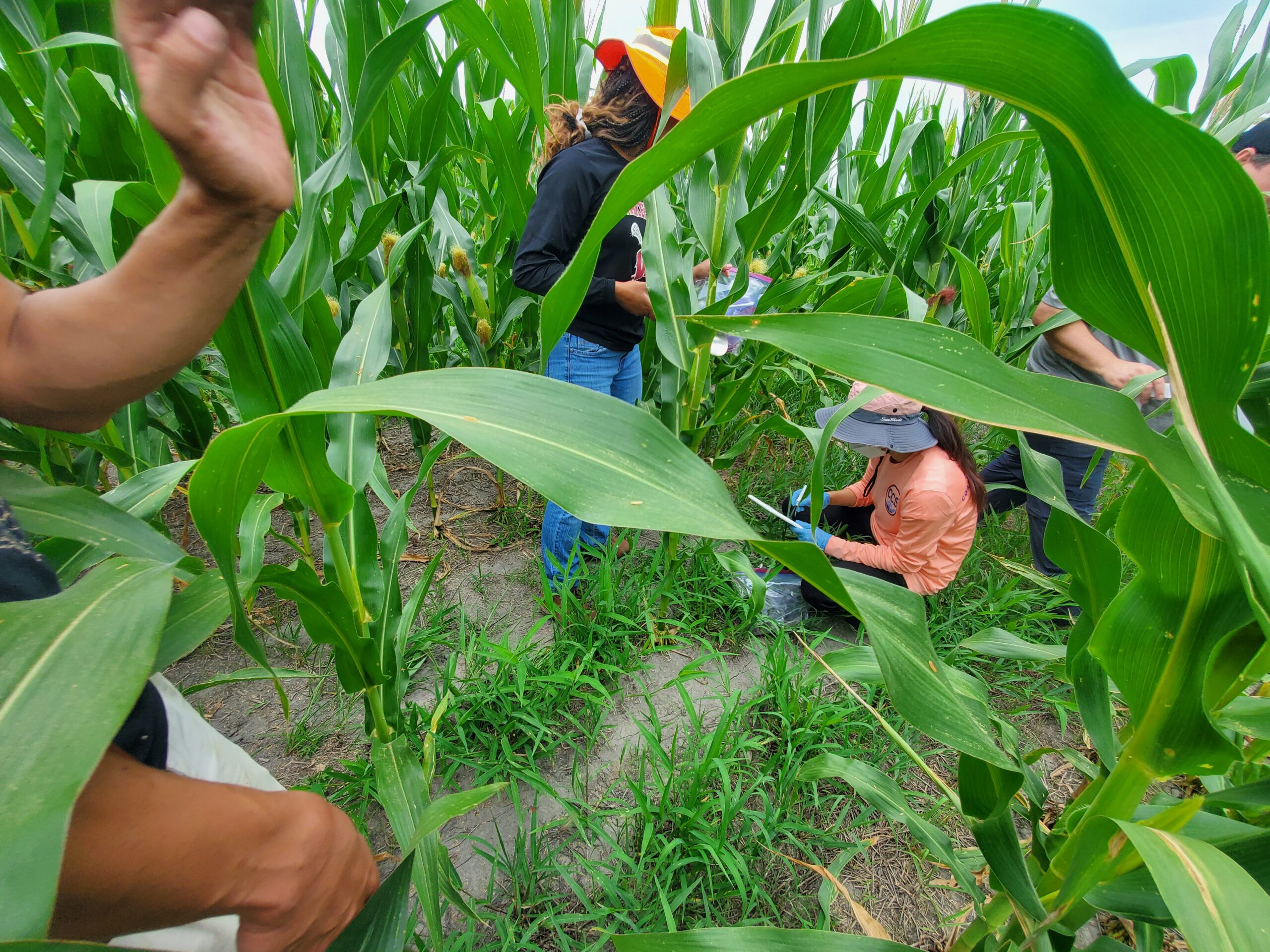
STEPS REU Program
STEPS will support 15 students for ten weeks during Summer 2024 through a multi-institutional Research Experience for Undergraduates (REU) program.
The STEPS Summer 2024 REU Program Begins in May.
Multi-institutional Research Experience
Convergence research through a collaborative cohort project.
Projects that align research and career interests.
PHOSPHORUS IN THE NEWS
See More News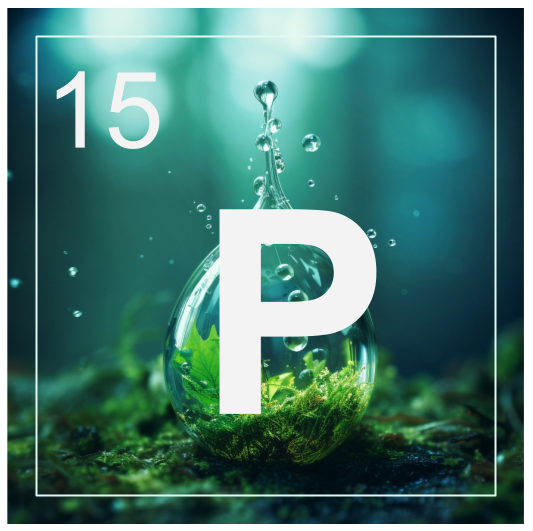
The STEPS Center and Sustainable Phosphorus Alliance announce Phosphorus Week 2024
Read more
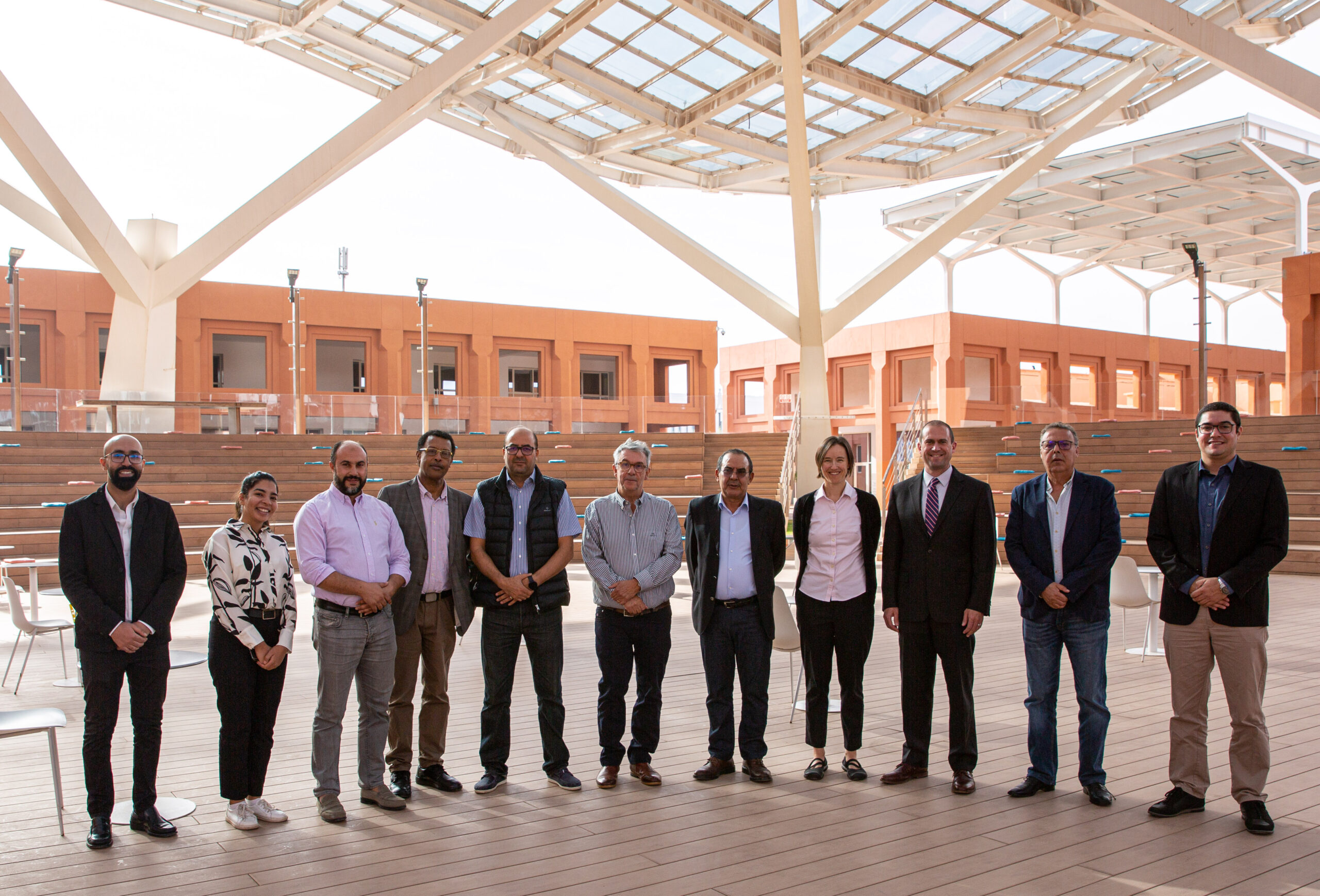
NC State and University Mohammed VI Polytechnic announce memorandum of understanding on advancing phosphorus sustainability
Read more
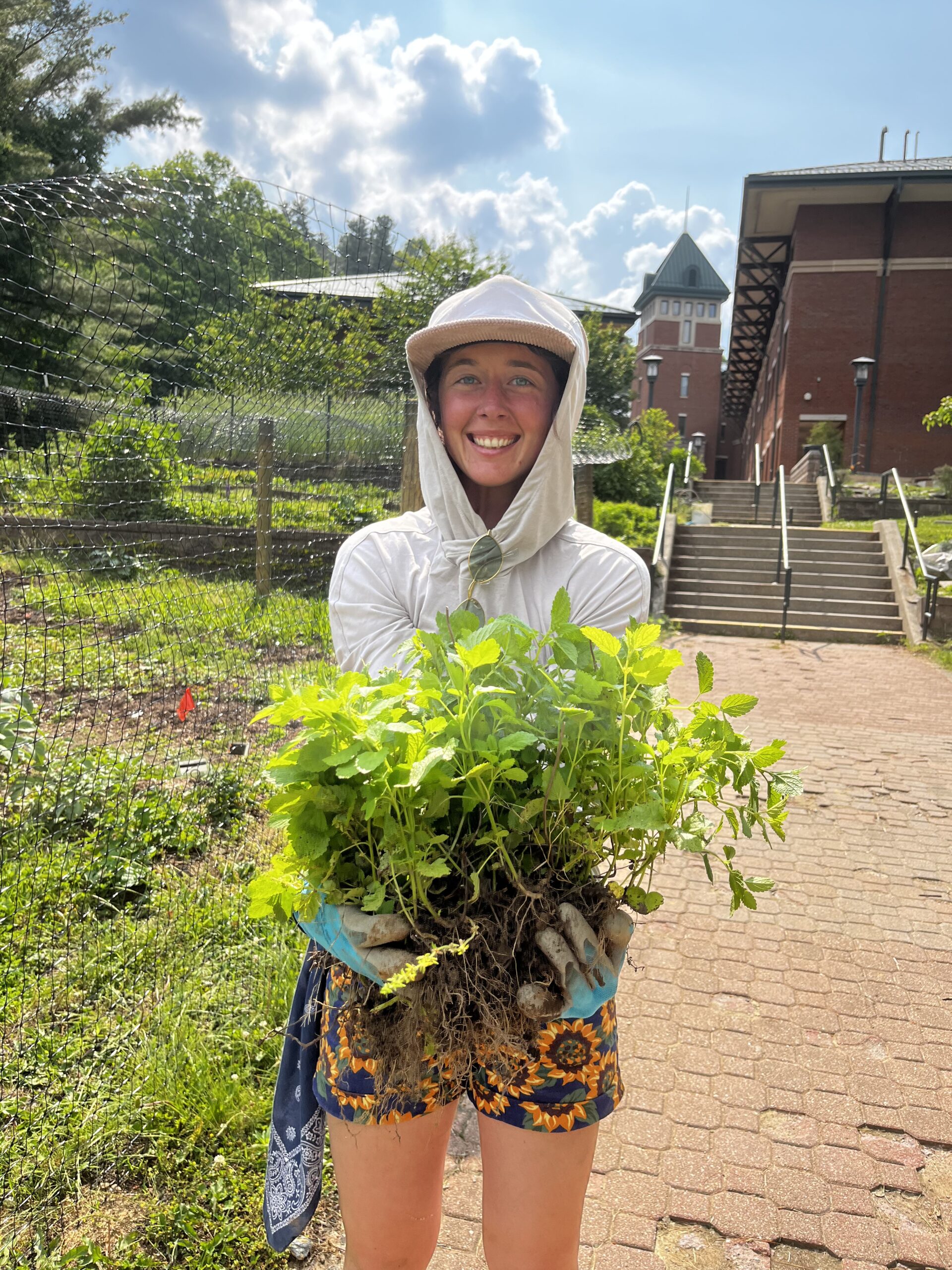
REU at Clemson University: Phosphorus Sensing and Food Sovereignty
Read more
Join researchers, practitioners, & decision makers at a Knowledge Co-Production Workshop at App State. You`ll discuss surface waters, nutrient cycling, and microplastics to co-create knowledge and inspire future research projects. Learn more and RSVP at: https://rieee.appstate.edu/co-producing-knowledge-about-decisions-that-impact-surface-waters-of-the-nc-high-country/.

Join researchers, practitioners, & decision makers at a Knowledge Co-Production Workshop at App State. You`ll discuss surface waters, nutrient cycling, and microplastics to co-create knowledge and inspire future research projects. Learn more and RSVP at: https://rieee.appstate.edu/co-producing-knowledge-about-decisions-that-impact-surface-waters-of-the-nc-high-country/.
STEPS scholar George Hotelling won first place for his poster at the Society of Environmental Toxicology and Chemistry Carolinas meeting, sharing his research exploring phosphorus flux in the Upper South Fork New River. Congratulations, George! #phosphorus #sustainability #undergraduateresearch

STEPS scholar George Hotelling won first place for his poster at the Society of Environmental Toxicology and Chemistry Carolinas meeting, sharing his research exploring phosphorus flux in the Upper South Fork New River. Congratulations, George! #phosphorus #sustainability #undergraduateresearch
Cyanobacteria is caused by phosphorus runoff from agricultural fertilizer and other sources of waste. Learn more about STEPS PI & @ncstateccee`s Dan Obenour and his fascinating work with nutrient cycling and eutrophication to combat toxic algae blooms in lakes and rivers.
#toxicalgae #nutrientcycling

Cyanobacteria is caused by phosphorus runoff from agricultural fertilizer and other sources of waste. Learn more about STEPS PI & @ncstateccee`s Dan Obenour and his fascinating work with nutrient cycling and eutrophication to combat toxic algae blooms in lakes and rivers.
#toxicalgae #nutrientcycling
While phosphorus is essential to fertilizer production, it also plays an important role inside our own bodies. Check out these fun facts to learn more about P behind the scenes! #funfacts #phosphorus

While phosphorus is essential to fertilizer production, it also plays an important role inside our own bodies. Check out these fun facts to learn more about P behind the scenes! #funfacts #phosphorus
Earlier this month, STEPS researchers from @Uflorida and partners on the @evergladesrec lettuce breeding team, wrapped up one of their lettuce phosphorus rate trials! This is an important step in the multi-year, multi-site study.
This research is important to updating and revising P fertilizer recommendations for lettuce in Florida. It can help optimize use of fertilizer and potentially improve yield while reducing cost.
@ufifas_solutions
#phosphorus #florida #fertilizer #Universityofflorida #agriculture

Earlier this month, STEPS researchers from @Uflorida and partners on the @evergladesrec lettuce breeding team, wrapped up one of their lettuce phosphorus rate trials! This is an important step in the multi-year, multi-site study.
This research is important to updating and revising P fertilizer recommendations for lettuce in Florida. It can help optimize use of fertilizer and potentially improve yield while reducing cost.
@ufifas_solutions
#phosphorus #florida #fertilizer #Universityofflorida #agriculture
We had a great week celebrating phosphorus with you! Continue following us to learn more about phosphorus, STEPS research, and the future of phosphorus sustainability. 🌱
#PWeek2024

We had a great week celebrating phosphorus with you! Continue following us to learn more about phosphorus, STEPS research, and the future of phosphorus sustainability. 🌱
#PWeek2024
Phosphorus sustainability is a wicked problem with no straightforward solutions. That`s why STEPS takes a convergence research approach to develop new technologies and processes as we advance our 25-in-25 vision! #PWeek2024

Phosphorus sustainability is a wicked problem with no straightforward solutions. That`s why STEPS takes a convergence research approach to develop new technologies and processes as we advance our 25-in-25 vision! #PWeek2024
P is a pollutant. Inefficient fertilizer use, along with urban wastes, results in degradation of water quality, including toxic algae blooms and “dead zones.” #PWeek2024

P is a pollutant. Inefficient fertilizer use, along with urban wastes, results in degradation of water quality, including toxic algae blooms and “dead zones.” #PWeek2024
Thank you for your continued support of our center! We look forward to continuing to connect with you & working toward a sustainable phosphorus future. 🌱
#PWeek2024

Thank you for your continued support of our center! We look forward to continuing to connect with you & working toward a sustainable phosphorus future. 🌱
#PWeek2024
Phosphorus sustainability is a dynamic space. You`ll go all over the place!
From conferences, to field work, to the lab. Think of all the knowledge you’ll grab.
#PWeek2024 #phosphorus #sustainability

Phosphorus sustainability is a dynamic space. You`ll go all over the place!
From conferences, to field work, to the lab. Think of all the knowledge you’ll grab.
#PWeek2024 #phosphorus #sustainability
The huge increase in crop production in the “Green Revolution” was only possible because of expanded use of N&P-rich fertilizer. #PWeek2024

The huge increase in crop production in the “Green Revolution” was only possible because of expanded use of N&P-rich fertilizer. #PWeek2024
Every living thing needs phosphorus to survive! Plants and humans alike need phosphorus for growth. In humans, phosphorus is in our DNA, teeth, and bones. In fact, there is about 1.35 lbs of phosphorus in your body. #PWeek2024

Every living thing needs phosphorus to survive! Plants and humans alike need phosphorus for growth. In humans, phosphorus is in our DNA, teeth, and bones. In fact, there is about 1.35 lbs of phosphorus in your body. #PWeek2024


